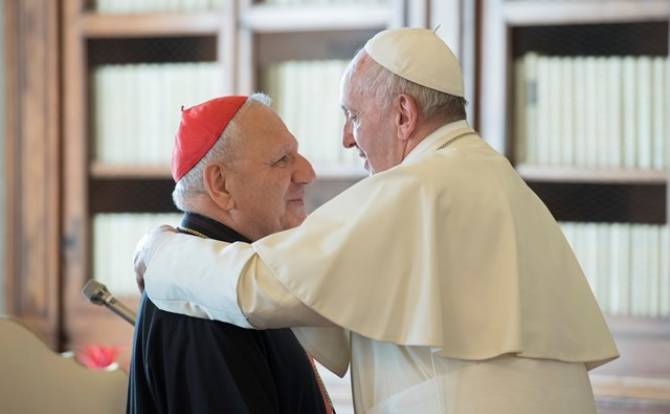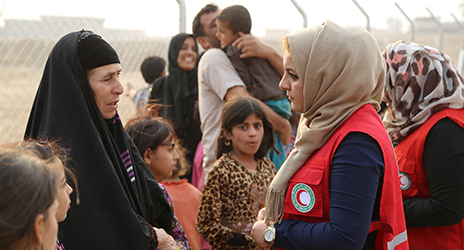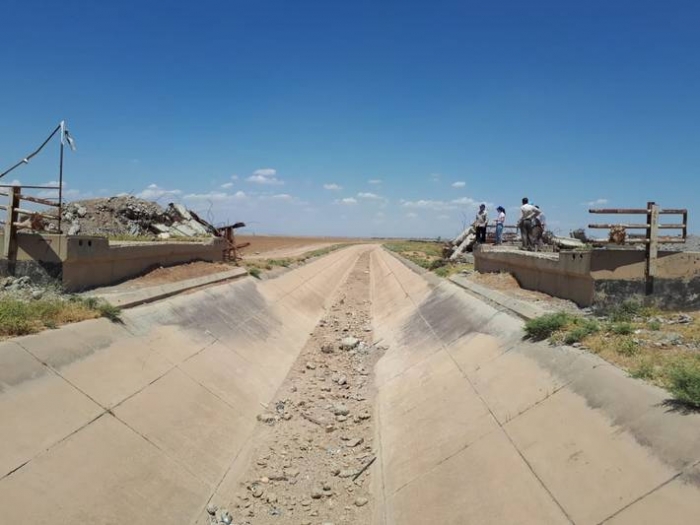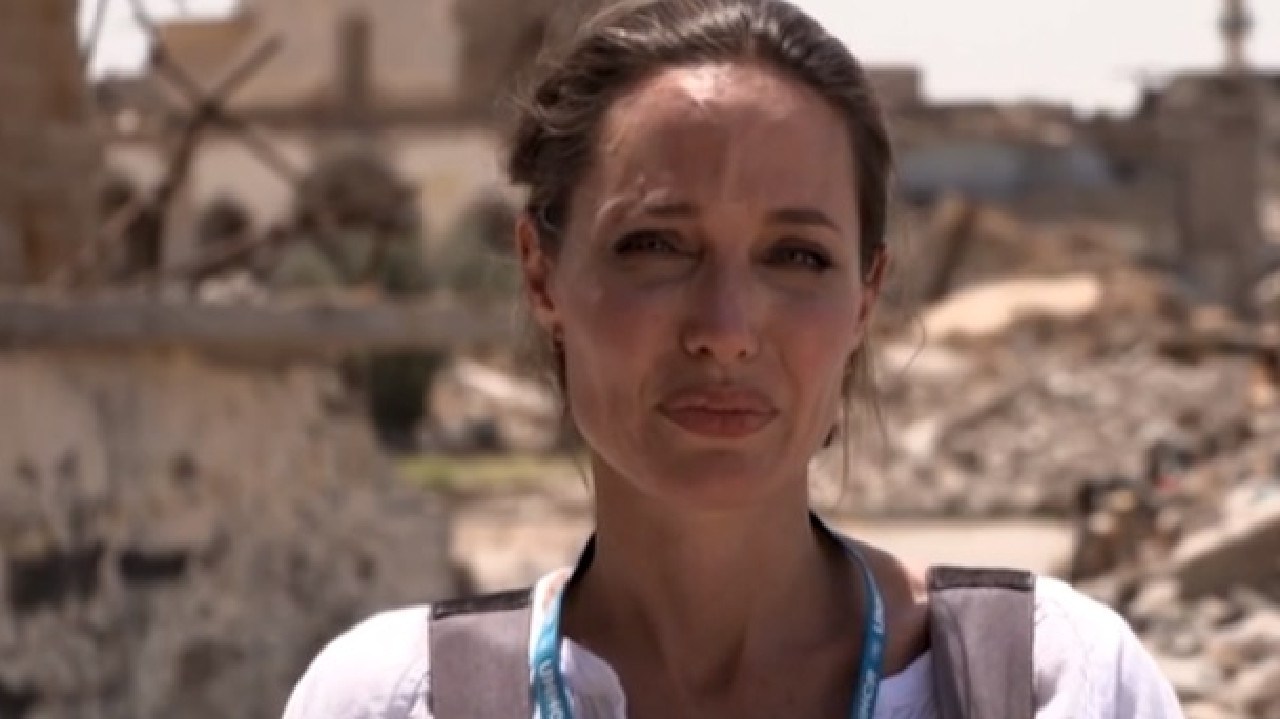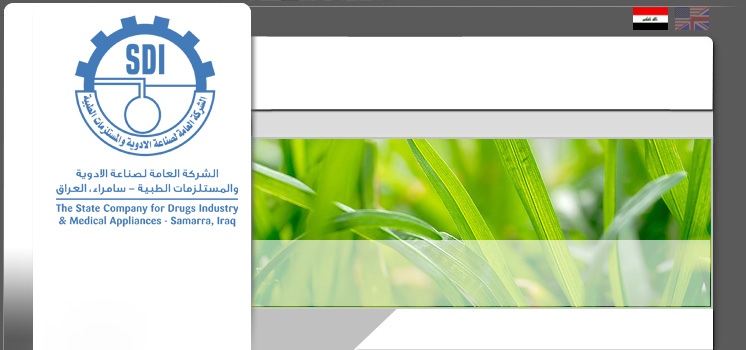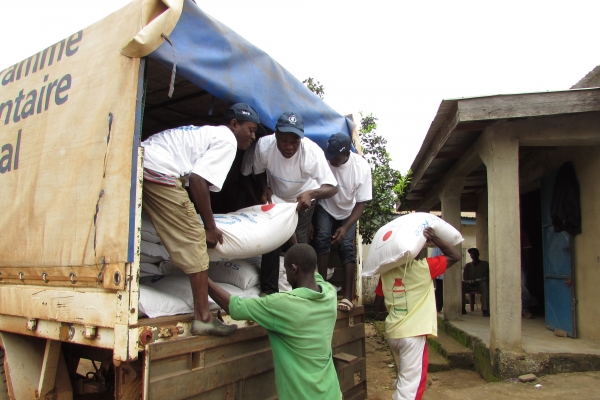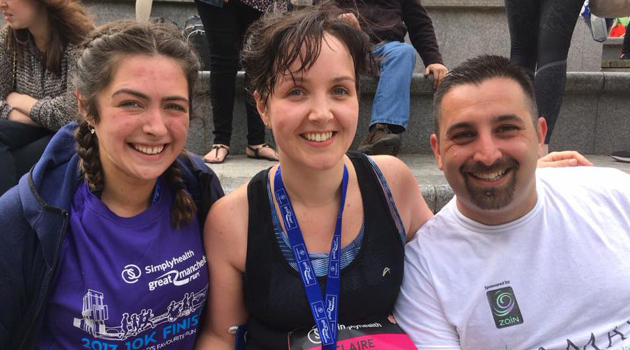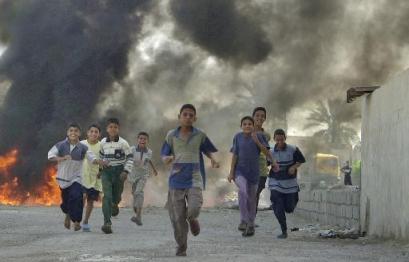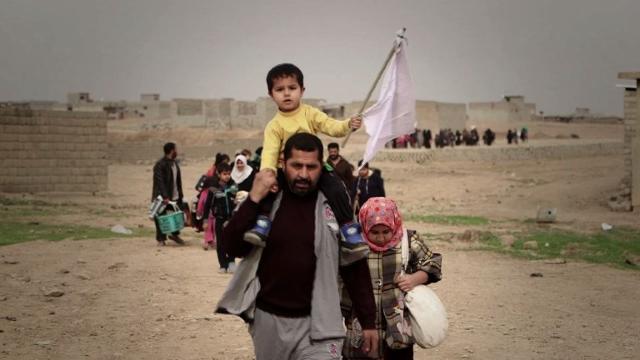By Hussein Al-alak.
Running with history, for modern education across Iraq
On Thursday 19th July, myself and Tracy Hollowood are taking part in the Run Media City 5K – to raise awareness of the educational achievements and mental health services of the AMAR Foundation in Iraq.
This run is different to my involvement on the Great Manchester Run in May – as this time we are paying tribute to the North of England’s relationship, with Iraq and the wider Middle East. As John F Kennedy stated; “geography has made us neighbours” and “history has made us friends”.
The reasons for this start with Notitia Dignitatum, a Roman document from around AD400, which describes how Roman Mesopotamian’s -modern day Iraqi’s- patrolled the UK’s South Shields, whilst bargemen from Iraq’s famous Tigris River once patrolled the River Tyne.
I have laughed with Tracy about our “Anthony and Cleopatra” 5K run for AMAR but when General George Keppel was travelling along Iraq’s Tigris River in 1824, he painted vivid descriptions of boatmen who resembled the “ancient heroes of Greece and Rome“.
It’s not just Britain’s occupation under the Roman Empire, which establishes a historic link between the North of England and Iraq. Archaeologist, spy and creator of “modern Iraq” Gertrude Bell – was born and raised in the North East – infact Washington – part of historic County Durham.
Further tributes to Britain’s relationship with the region, are acknowledged by the arrival of Siegfried Sassoon’s grandfather from Basra to Manchester in 1858. The famous historian of Lebanese descent Albert Hourani, was also born in Manchester but in 1915.
Author of “A History of the Arab Peoples”, Albert Hourani’s book has been described by Harvard University Press – as being “the definitive story of Arab civilisation” which became “an instant classic”upon publication.
It was Maya Angelou who said “the more you know of your history, the more liberated you are” and growing up, I was fortunate to be raised in a mixed heritage family, where an understanding of history was appreciated and a study of history encouraged.
I was incredibly fortunate to have a grandmother, who was born in 1917 and raised in Newcastle during the Great Depression. My grandmother could recall the many struggles that families went through, during the economic downturn of the 1930’s, prior to the creation of the Welfare State.
I was also lucky to have a grandfather, who was born in Manchester’s Moss Side in 1907 and in 1945; was among the British forces who helped liberate the Bergen-Belsen Concentration Camp. In post-war Britain, my grandfather then took an active role in helping with the city’s reconstruction, as a member of Manchester City Council.
After attending the AMAR Foundation’s recent dinner at the Foreign Office, I visited Great Uncle Ron Fisher, who as a member of Britain’s merchant navy, lost his life when the Empire Gilbert ship was torpedoed in 1942. Uncle Ron’s name at-least, now rests on the Tower Hill Memorial, facing the Tower of London.
As world events “have rumbled on since those gagged days”, the past would never have known that in 2018, taking part in the Run Media City 5K and asking for help to advance AMAR’s efforts in education, would be following a family tradition in rebuilding lives after war.
Because of reforms brought in by the British Government, following the Allied victory in World War Two, education became accessible for all children, allowing for my grandparents to raise children in a post-war environment, which enabled them to pursue a college and university education.
Those same reforms also allowed for Uncle Ron’s widow, my great Aunt Jean and her second husband David (a veteran of the Merchant Navy), to dedicate their lives, to educating young people in a private boarding school. The young people they taught had been excluded from the mainstream education system.
Whilst at the AMAR Foundation’s dinner at the Foreign Office, Lord Mark Price praised the efforts of Baroness Emma Nicholson – AMAR’s founder and chairperson – along with praising everyone who has helped AMAR remain a tour de force for 25 years.
Lord Price gave mention to the fact, AMAR has helped educate 5 million people across Iraq, with each person having experienced conflict or the loss of loved ones as a result. The people educated by AMAR are diverse and their circumstances often reflect the country’s recent history with conflict.
But AMAR also recognise, the future does not have to be determined by Iraq’s recent past, as it was once stated “they who ignore history are destined to repeat its mistakes”. This determination, is something that we can only carry with us but it’s something that only we the people can also change.
Hussein Al-alak is the editor of Iraq Solidarity News (Al-Thawra). To support Hussein and Tracy on the Run Media City 5K, they are asking that people donate to the AMAR Foundation: please click here.

